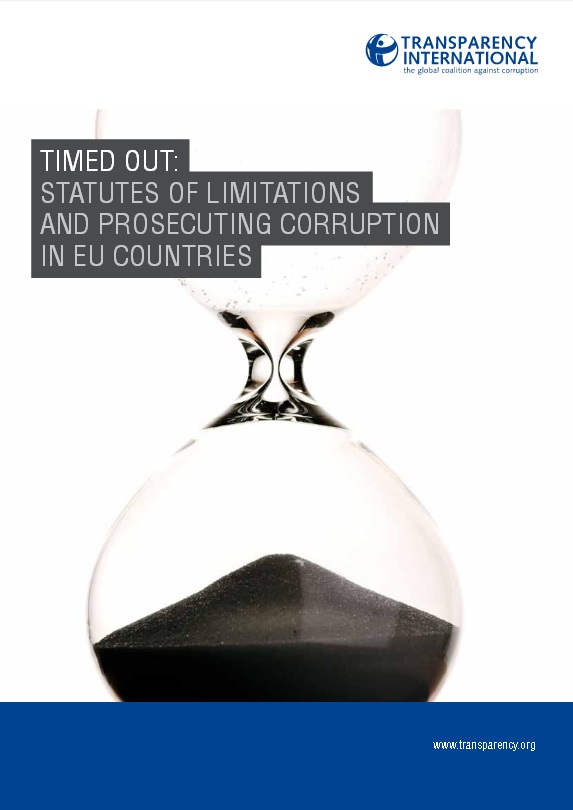 Statutes of limitations set the maximum period within which a criminal or civil action can be brought against an alleged offender. While promoting fairness and efficiency in investigative and judicial proceedings, they can also hamper effective prosecution of offences if they are overly short or do not provide for sufficient flexibility. Statutes of limitations can lead to the impunity of alleged offenders, particularly for corruption offences that often only come to light after a long passage of time. In addition, cross-border corruption cases are often a long process, as international legal cooperation can be slow.
Statutes of limitations set the maximum period within which a criminal or civil action can be brought against an alleged offender. While promoting fairness and efficiency in investigative and judicial proceedings, they can also hamper effective prosecution of offences if they are overly short or do not provide for sufficient flexibility. Statutes of limitations can lead to the impunity of alleged offenders, particularly for corruption offences that often only come to light after a long passage of time. In addition, cross-border corruption cases are often a long process, as international legal cooperation can be slow.
Transparency International has carried out comparative research across the European Union including Ireland to assess the relevance of statutes of limitations in the fight against corruption. To identify both weaknesses and best practices in statutes of limitations, the research examines the situation in 27 EU countries. Based on the results of the research, Transparency International will advocate for best practices to be adopted where needed.
Results
- Lengthy proceedings constitute serious obstacles to the enforcement of anti-corruption law in most EU countries
- Statute of limitations often show weaknesses and loopholes which, in some countries, effectively lead to impunity of alleged offenders
- Statute of limitations are of particular relevance in the investigation and prosecution of complex cases, especially when there is a cross-border dimension requiring international cooperation
- Several EU jurisdictions offer examples of good practice, and some recent reforms have led to an improvement of statute of limitations with regards to the prosecution of corruption-related crimes
- There is a lack of statistical data regarding the number of cases that are closed as a result of statute of limitations.
This report was published with support from the Prevention of and Fight against Crime Programme of the European Union, European Commission - Directorate-General Home Affairs.

